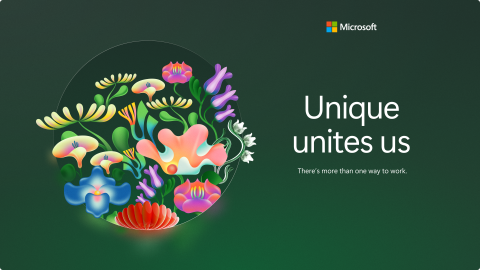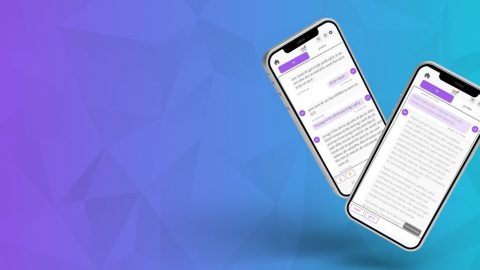Windows Developer Quietly Creates Apps to Help People with Disabilities Communicate
The following blog post was written by Paul Nyhan, a staff writer with the Microsoft Accessibility Blog. Paul is a 20-year journalism veteran who has written extensively about disability issues.
—–
Many days Guy Barker is on his home computer by 5 a.m., but not for his job as a developer on Microsoft’s Windows team. For the last decade, Barker has risen before dawn to create apps that could help people with disabilities communicate and connect.
Over the years, Barker has doggedly developed a series of apps that help students with speech disabilities translate their handwriting into spoken language, children with autism learn to write and adults with amyotrophic lateral sclerosis (ALS) communicate by speaking words and phrases they choose on a screen.
Barker was never looking to get rich from his work. Instead, he saw technology’s potential to fill big and small gaps in accessibility. And then he started filling those gaps.
“We have great technology that is ready to be used by people who can be helped by relatively simple things,” said Barker, a native of Manchester, England. “When technology is available to people and it isn’t being leveraged by them in ways that would be useful that just seems wrong.”
Barker’s latest creation is The 8 Way Speaker app. A user relies on touch, a mouse, a keyboard, a switch device or any of four other options, which is why it’s called 8 Way, to choose a phrase, such as “Good Morning.” Then the device speaks that phrase. (Check out a video of the app)
Despite Barker’s enthusiasm for his second job, the work was sometimes lonely and frustrating. Teachers, parents and adults with disabilities used his apps, though they rarely responded with feedback he needed to improve his efforts. But, his enthusiasm and the need to fill those gaps he saw, particularly for people with ALS, commonly known as Lou Gehrig ’s Disease, who can lose motor function as the disease progresses, always won out.
“I periodically thought of shutting it down,” Barker admitted. “But, if we can help people today, and I mean today, we should help people today. Time is precious.”
Barker’s apps are not slick by today’s commercial standards. Instead, his work is experimental, in a way. During morning work sessions he will be thinking about the intersection of disability and advanced audio coding when an idea will strike. Then he will work on that idea until he thinks it could help students or adults communicate. Finally, he will send it to occupational therapists, teachers, students or adults with disabilities, asking them to use it and tell him how to make it better.
“Once I have an idea, I can’t stop thinking about it until I have it out of the way,” Barker said. “We have great technology that is ready to be used by people.”
Check out Barker’s other apps on his website Herbi.org. If you want to try an app or help him develop new ideas, contact him at [email protected].







